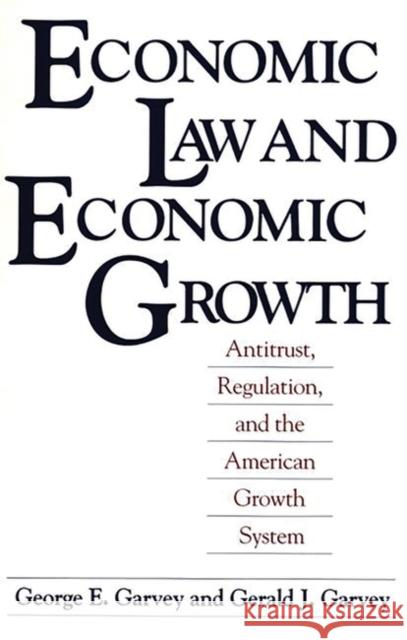Economic Law and Economic Growth: Antitrust, Regulation, and the American Growth System » książka
Economic Law and Economic Growth: Antitrust, Regulation, and the American Growth System
ISBN-13: 9780275935474 / Angielski / Miękka / 1990 / 184 str.
This volume provides a practical anwer to, among other question, "Whither public law after the Chicago School'?" Using perspectives from American history, economic theory, an legal analysis, the Garveys take an interdisciplinary approach to U.S. public law and policy--antitrust and regulation--and develop the essential unity of the two major fields based on a clearly written summary of pertinent microeconomic principles. They establish that economic growth has been a primary goal of U.S. public policy throughout the nation's history. The authors provide a thorough critical survey of neopopulism and neoclassicism, the two major post-war impulses in public economic law. An innovative and concrete framework for policy development and for practical institutional reform aimed at improving U.S. industrial competitiveness by improving the capital allocation process is presented here. The highly readable text is complemented by graphics and tables for those who may want a rigorous treatment of economic/legal concepts. The work has been extensively annotated, especially to legal precedents and economic texts. Law school libraries, major public libraries, libraries of law firms, federal courts and superior state courts, as well as university libraries will find Economic Law and Economic Growth a necessary addition. This is a volume that can be productively consulted by practicing lawyers and college/university teachers in the fields of antitrust law, regulation--both lawyers and economists, and public policy. An invaluable addition to courses in antitrust and administrative law, economic policy, the regulatory process, economic development/industrial policy, and political economics.











